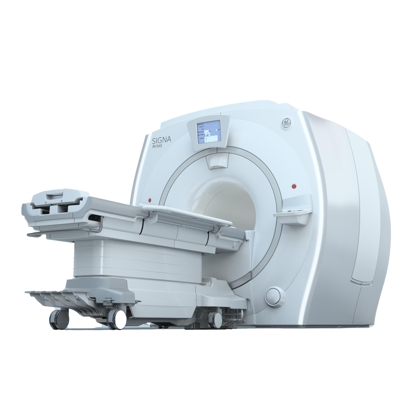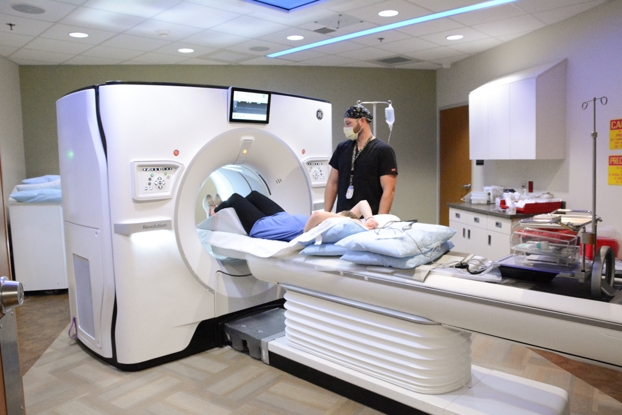
Non-Invasive Cardiology
Non-invasive cardiology focuses on the detection and treatment of heart disease using external tests to evaluate and diagnose cardiac disorders, such as chest pain, shortness of breath, dizziness, fainting or rapid and irregular heartbeats. The Non-Invasive Cardiology Lab is accredited in Adult Echocardiography and Adult Stress Echocardiography by the Intersocietal Accreditation Commission (IAC). Our team of professional cardiovascular sonographers, nurses, pacemaker specialists, clerical staff and EKG technicians is dedicated to providing high quality, compassionate care.
The following non-invasive diagnostic tests are ordered by a physician and performed for inpatients or outpatients.
-
Electrocardiogram (EKG): A tracing of the electrical activity in the heart
- Holter Monitor: 24 or 48 hours of continuous EKG tracings recorded on a small monitor that is worn while a person goes about his/her normal daily activities
- Long-term Ambulatory Telemetry: EKG activity can be continuously analyzed for up to 30 days by wearing a small recording device similar to a Holter Monitor.
- Pacemaker Clinic: Pacemaker/Implantable Cardiac Defibrillator devices are tested by analyzing heart rhythms with special computer systems in order to assure proper device function.
-
Stress Tests
- Exercise Treadmill Cardiac Stress Test: EKG recordings and blood pressures are monitored before, during and after exercise on a treadmill.
- Nuclear Cardiac Stress Test: EKG tracings and nuclear images of the heart are recorded at rest and again during stress. These are also known as Lexiscan or Myoview Stress Tests.
-
Echocardiogram: Ultrasound imaging of the heart evaluating heart function and assessing
the cardiac valves.
- Transesophageal Echocardiogram: Echocardiogram performed with a specialized ultrasound probe which is passed into the esophagus, enabling the cardiologist to visualize cardiac structures more clearly than with a routine echo.
- Stress Echocardiogram: Echocardiogram is performed at rest and with exercise (either walking on a treadmill or by using medications that cause the heart to work harder.)
-
Ultrasound Imaging
- Carotid Doppler: Ultrasound imaging of the arteries in the neck
- Arterial Doppler Imaging: Imaging arteries in the legs or arms using ultrasound
- Venous Doppler Imaging: Ultrasound imaging of the veins of the arms or legs
- Abdominal Vascular Imaging: Ultrasound imaging of the abdominal aorta or renal arteries
-
Robert S.. Leverton, MD
CardiologyView Profile
-
Lindsey Crowe, FNP
CardiologyView Profile
-
Brooklyn P.. Gillit, NP
CardiologyView Profile
-
Lawrence E.. Widman, MD
HospitalistView Profile
-
Narendra Duddyala, MD
CardiologyView Profile
-
Farley B.. Neasman, MD
CardiologyView Profile
-
Michael S.. Blanc, MD
CardiologyView Profile
-
Kristy L.. Booth, FNP
CardiologyView Profile
-
Jonathan P.. Urbanczyk, DO
CardiologyView Profile
-
Dhruv Rajpurohit, DO
CardiologyView Profile
/




















